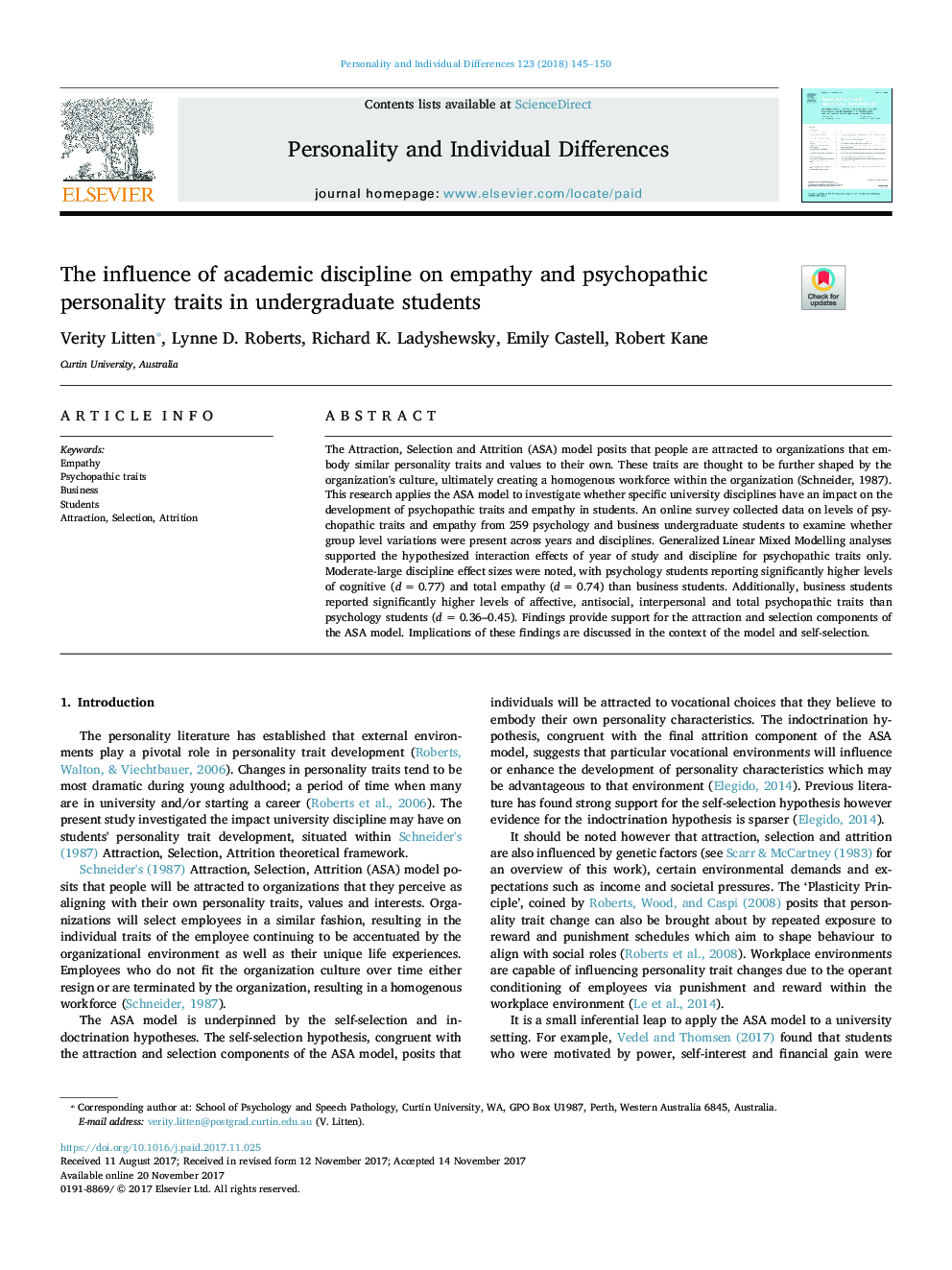| کد مقاله | کد نشریه | سال انتشار | مقاله انگلیسی | نسخه تمام متن |
|---|---|---|---|---|
| 7249235 | 1471995 | 2018 | 6 صفحه PDF | دانلود رایگان |
عنوان انگلیسی مقاله ISI
The influence of academic discipline on empathy and psychopathic personality traits in undergraduate students
ترجمه فارسی عنوان
تأثیر رشته تحصیلی بر همدلی و ویژگی شخصیتی روانپزشکی در دانشجویان کارشناسی
دانلود مقاله + سفارش ترجمه
دانلود مقاله ISI انگلیسی
رایگان برای ایرانیان
کلمات کلیدی
یکدلی، صفات روانپزشکی، کسب و کار، دانش آموزان، جاذبه، انتخاب، از بین بردن،
موضوعات مرتبط
علوم زیستی و بیوفناوری
علم عصب شناسی
علوم اعصاب رفتاری
چکیده انگلیسی
The Attraction, Selection and Attrition (ASA) model posits that people are attracted to organizations that embody similar personality traits and values to their own. These traits are thought to be further shaped by the organization's culture, ultimately creating a homogenous workforce within the organization (Schneider, 1987). This research applies the ASA model to investigate whether specific university disciplines have an impact on the development of psychopathic traits and empathy in students. An online survey collected data on levels of psychopathic traits and empathy from 259 psychology and business undergraduate students to examine whether group level variations were present across years and disciplines. Generalized Linear Mixed Modelling analyses supported the hypothesized interaction effects of year of study and discipline for psychopathic traits only. Moderate-large discipline effect sizes were noted, with psychology students reporting significantly higher levels of cognitive (d = 0.77) and total empathy (d = 0.74) than business students. Additionally, business students reported significantly higher levels of affective, antisocial, interpersonal and total psychopathic traits than psychology students (d = 0.36-0.45). Findings provide support for the attraction and selection components of the ASA model. Implications of these findings are discussed in the context of the model and self-selection.
ناشر
Database: Elsevier - ScienceDirect (ساینس دایرکت)
Journal: Personality and Individual Differences - Volume 123, 1 March 2018, Pages 145-150
Journal: Personality and Individual Differences - Volume 123, 1 March 2018, Pages 145-150
نویسندگان
Verity Litten, Lynne D. Roberts, Richard K. Ladyshewsky, Emily Castell, Robert Kane,
